15:47
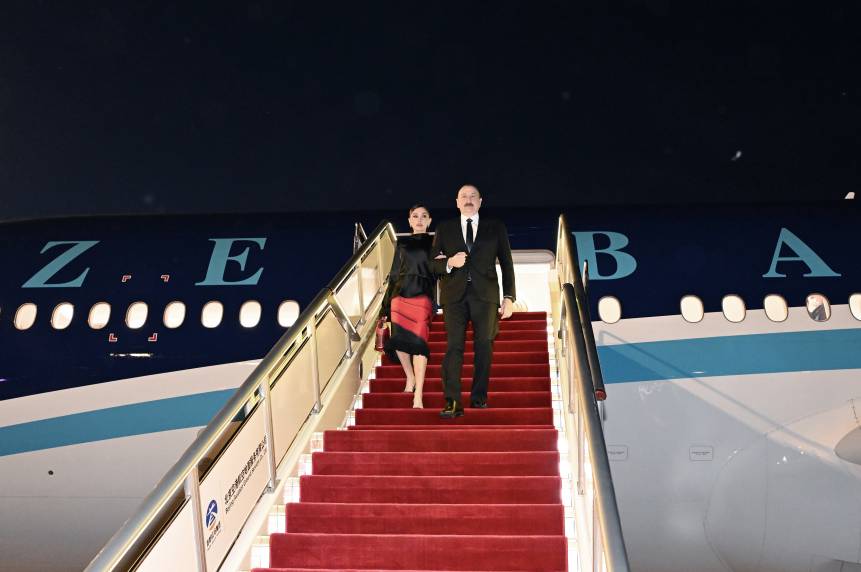
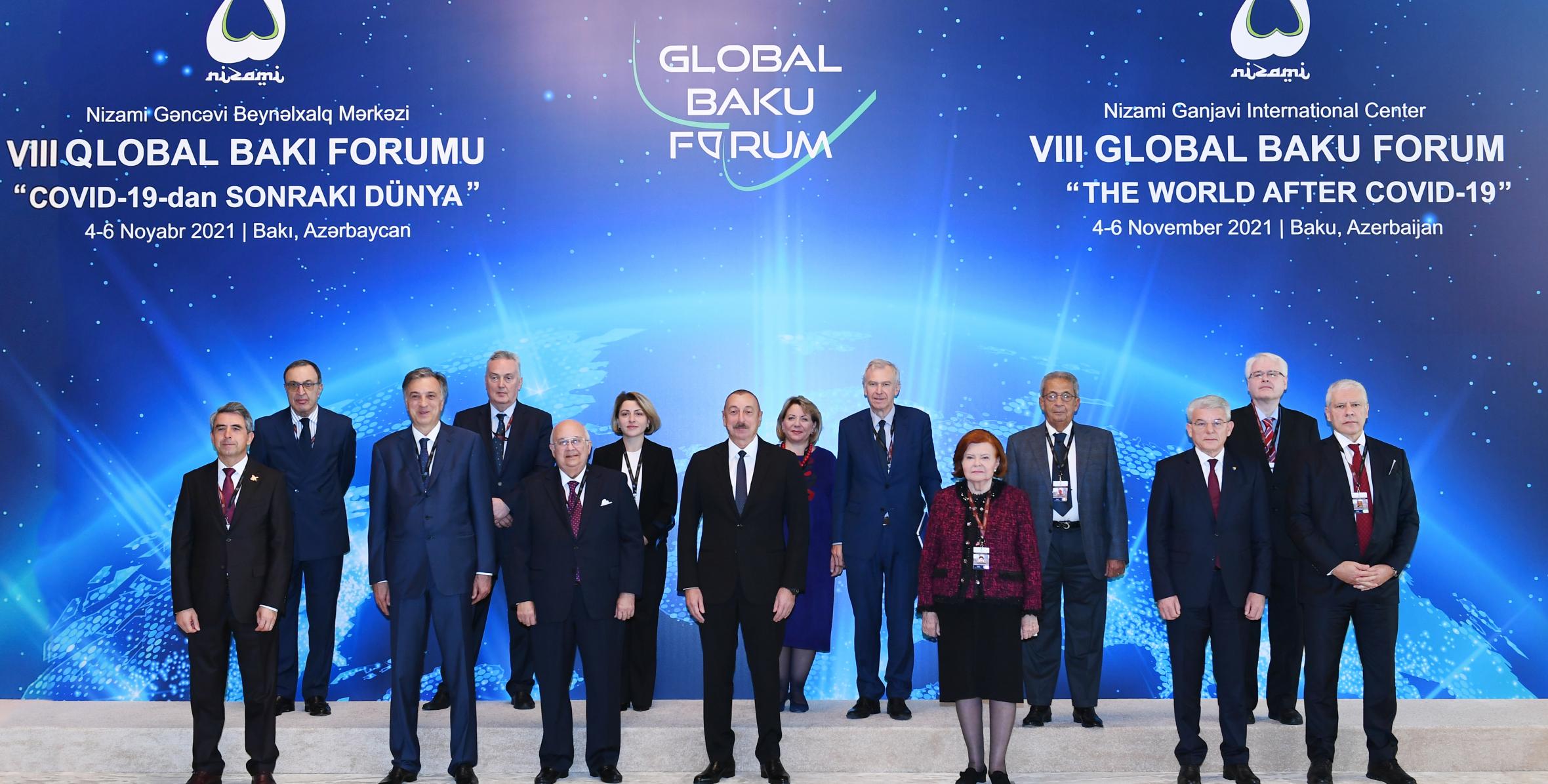
Organized by the Nizami Ganjavi International Center under the patronage of President Ilham Aliyev, the next Global Baku Forum under the motto "The world after COVID-19” has today kicked off.
President of the Republic of Azerbaijan Ilham Aliyev attended the opening ceremony of the Forum.
Declaring the 8th Global Baku Forum open, co-chair of the Nizami Ganjavi International Center Ismail Serageldin said: Mr. President, We are all anxious to hear you.
President Ilham Aliyev delivered a speech at the opening ceremony.
Speech by the President Ilham Aliyev
-Dear friends, dear ladies and gentlemen, dear co-chairs of the Nizami Ganjavi International Center, dear participants.
I welcome all of you. I would like to express gratitude to you for being with us. When we were discussing with the co-chairs of the Center the annual Global Baku Forum of 2021, we could not even imagine that there would be such a broad presentation here in Baku. So this demonstrates first of all that the situation with COVID is getting better and second, of course, it demonstrates that you pay very great importance to this event. Because in fact, Baku Global Forum has transformed into one of the leading platforms to address urgent and important issues of global politics. First of all, I would like to express gratitude to the co-chairs of NGIC Madam President Vaira Vike-Freiberga, Mr. Serageldin, for their outstanding leadership of the Center. Even during the pandemic, their activity was very visible. It’s due to their leadership and commitment to the Center and its ideals that the Center transformed into as I said, into one of the leading international institutions. Also, I would like to express gratitude to members of the Board for their contribution and to permanent members and permanent participants. As we discussed yesterday with the members of the Board, it’s like a big family and a friendly family. I think this is one of the reasons of success. It’s enough only to look at the list of participants today, the list of speakers, the list of those distinguished personalities who will address the forum to say that it’s amazing how in a relatively short period NGIC transformed into one of the very few leading international institutions with the great potential which accumulates the knowledge, experience, and vision of intellectually, statesmen, politicians, journalists, public figures and members of civil society. So, today’s Global Baku Forum will address urgent issues which are on the agenda. But before addressing those issues, I would like to say that we are also very glad to see that. Yesterday I was presented with two books devoted to Nizami whose 880th anniversary we are celebrating this year. According to the Presidential Decree, this year in Azerbaijan was declared “The Year of Nizami” in commemoration of our great Azerbaijani poet. The agenda of the Forum is very broad, but I would like to touch upon several issues. First, of course, the pandemic, because it’s now issue number one on the global agenda. We talk about the pandemic, some talk about the post-pandemic period. It’s not very clear whether we are already in the past pandemic period because various countries address this issue differently. I would like to inform you that Azerbaijan from the very outbreak of this disease, of this crisis, took very proactive steps both domestically and internationally. We started vaccination on 18 January this year, one of the first countries in the region and so far more than 60 percent of the population above 18 received both doses. In a relatively short period, we managed to create 13 new state hospitals with a total number of beds standing at almost 4,000. In general, 46 state hospitals have been allocated to treat pandemic. Now we don’t have a lockdown. The situation is under control. The only restriction is we have to wear masks in the buildings and hopefully we will be able to keep the situation under control. At the same time, we took serious measures to ease the burden of the lockdowns which we had before. We provided a social and economic support package for those who lost jobs, for those who suffered from these lockdowns. The total cost of the package is 2.9 billion US dollars. This money was financed from our state budget, and we will continue to do it because we need to ease the burden of the people who found themselves in a new situation. We are using mainly two vaccines: Sinovac and Pfizer. As I said, the level of vaccination is high and this is, of course, due to the state policy. At the same time, I would also like to mention that we are very happy to see that our population is very responsible. Vaccination is not forceful. We do not have any anti-vaccination campaigns or even any anti-vaccination trends.
The people of Azerbaijan realize the importance of vaccination, and it makes our job much easier. On a global scale, Azerbaijan also took very active steps in its capacity as a current chair of the Cooperation Council of the Turkic-speaking States and the Non-Aligned Movement. Last year we initiated two summits of both institutions in April and May, particularly addressing COVID. At the Summit of Non-Aligned Movement, we launched an initiative to hold the UN General Assembly Special Session on COVID which was supported by an absolute majority of the international community. That Special Session took place on the 3-4 December last year. So, that was our contribution to addressing the global issues. At the same time, we launched the initiative in United Nations Human Rights Council, concerning equal and universal access to vaccines and fair distribution of vaccines. We are one of the countries which openly speak about such an issue as vaccine nationalism and the unfair distribution of vaccines on a global scale. Some countries already had the third vaccination plan and implement these plans. Some countries still have a very low percentage of vaccinated people. Therefore, we need to address this issue to create equal opportunities. At the same time, I would like to say that based on our initiative the database for COVID treatment which has been established with our participation is used by World Health Organization, I mean in the countries of Non-Aligned Movement, which also makes it easier to plan and forecast the support. In the capacity, as a chair of the Non-Aligned Movement, we provided financial and humanitarian support to more than 30 countries and we provided free-of-charge doses of vaccines to several countries.
At the same time, we made a voluntary donation to World Health Organization to support poor countries worth ten million US dollars. So, these are the steps which we have undertaken on a global scale, and again, combining of efforts by the international community and, of course, the responsible approach of the leading countries of the world will help to cope with this disease. Another issue which I would like to raise today is the issue that I had raised at every Baku Global Forum from the first until the last. During all these previous seven fora I raised the issue of conflict between Azerbaijan and Armenia. Today I would like to say that the conflict is resolved. Azerbaijan resolved the conflict itself. Azerbaijan itself implemented UN Security Council resolutions adopted in 1993, which demanded the immediate, complete and unconditional withdrawal of Armenian troops from the occupied territories of Azerbaijan. Unfortunately, these resolutions remained on paper for 27 years, and probably, would have remained on paper for another 27 years if Azerbaijan did not itself restore its territorial integrity, using chapter 51 of the UN Charter which provides the right for self-defense using the international legal framework. Because not only UN Security Council, but other leading international institutions adopted similar resolutions and decisions concerning the occupation of Azerbaijan’s territories. United Nations General Assembly, OSCE, Non-Aligned Movement, Organization of Islamic Cooperation, European Parliament, Parliamentary Assembly of the Council of Europe adopted in different times similar decisions and resolutions concerning the conflict which was fully in line with what we have done last year liberating our territories. Unfortunately, Armenia was trying only to seal the status quo, trying to use negotiation format only as a tool for freezing the conflict forever. And if in previous years Armenian leadership was pretending that they were willing to work within the framework of the OSCE Minsk Group to find the resolution of the conflict which provided for liberation of occupied territories, the last couple of years the Armenian leadership was already announcing that they were not going to give any centimeter of occupied territories back. There is enough proof of that. It’s enough only to mention the statement of the current Armenian prime minister which he made on the occupied territories of Azerbaijan two years ago that “Karabakh is Armenia and period”. So, that was the end of negotiations. First, it was a very contradictory and false statement, because, on the one hand, the Armenian leadership was saying that Karabakh is an independent country, though no country in the world, including Armenia itself, recognized it. On the other hand, they were saying Karabakh is Armenia. So, this contradiction demonstrates the contradictory policy of Armenia which led to this miserable defeat that they suffered last year. So, this kind of statement puts an end to any negotiations. I can say that the Minsk Group co-chairs, according to my impressions, were also surprised and embarrassed by that statement, because there was nothing left for them to do. Another statement was made by the then the defense minister of Armenia, who was openly threatening Azerbaijan saying that Armenia is preparing for a new war for new territories. An open threat to occupy more territories of Azerbaijan. Unfortunately, the international community, including the OSCE Minsk Group co-chairs were silent. There was no condemnation. There was not even a message saying that this kind of statement is inappropriate. So, many other statements and acts which Armenian leadership has undertaken were aimed at provoking Azerbaijan. I can mention the so-called inauguration of the so-called self-proclaimed quasi president of the separatist unit in Shusha which was an open insult to the feelings of Azerbaijanis. I can also say about the decision of Armenia to transfer their so-called parliament of the separatists from Khankandi to Shusha, another insult to the feelings of Azerbaijanis. The Armenian leadership should have understood that they are not in a position to insult the feelings of our people. Every patience has a limit. Then, in July 2020, when they launched open military provocation on the border killing our civilians and military servicemen. August 2020, when they sent a sabotage group to commit acts of terror which were neutralized, and of course, September when they started to shell the peaceful cities and villages of Azerbaijan. The Second Karabakh War, which we called a Patriotic War, lasted 44 days and ended in the total defeat of the Armenian army. Armenia was forced to accept our terms and conditions. During the first days of the war, I was saying that we are ready to stop when the Armenian prime minister gives me the date of their withdrawal from occupied territories. It took the Armenian leadership almost 7 thousand losses, and 44 days to understand that they were in an absolute disaster. On the night from 9 to 10 November, Armenia signed a capitulation act and the war ended. We kept our word. As soon as they gave us the timetable of the withdrawal from remaining occupied territories the war stopped.
In four days, the people of Azerbaijan will celebrate the first anniversary of our historic victory. What we have seen in the liberated territories is total devastation. Not a single building is left. During the years of occupation, they demolished all historical monuments; 65 mosques out of 67, homes, houses, public buildings et cetera. It is proof of barbarism. Now we are actively restoring the liberated territories, the large-scale restoration program has been launched and I am sure that in a relatively short period we will be able to return former refugees, more than one million people who suffered from Armenian occupation. What the war and the results of the war showed is that sooner or later justice prevails. You must be committed to your cause, be well prepared, have an international legal framework, and have a high level of motivation of the people. So, all those factors including our military capabilities were the main reason for the resolution of the conflict. Now the conflict is over and as I said, reconstruction has started. Now we are in a post-conflict situation where we made several proposals to Armenia to start working on a peace agreement. Because we don’t want to talk about war, we want to talk about peace, we want to talk about the future. Unfortunately, this proposal is still not answered. At the same time, we proposed to start working on the delimitation and demarcation of our state borders with the recognition of the territorial integrity of both countries. Again, it is in line with the international law norms and conforms to normal behavior. This proposal is not addressed either. Azerbaijan demonstrates maximum constructiveness despite all the sufferings of almost 30 years of occupation, despite vandalism and barbarism on the liberated territories. We need to look to the future. We need to make the region safe, predictable, and ready for large-scale cooperation. There are different proposals about that, probably you heard about them. I think that everything will depend on Armenia’s position because our position is absolutely clear. Today, once again, I say that we are ready to start peace talks, we are ready to work on a peace agreement, we are ready to turn the page, we are ready to start border delimitation. But you will see that there will be no answer from Armenia. They keep silent for almost one year. I don’t think that they are now in the position to oppose Azerbaijan's constructive proposals. If they listened to us during the years of negotiations, İf they behaved like normal human beings, they wouldn’t have found themselves in today’s situation. Another issue and the last point which I would like to mention, without taking much of your time. It was a little bit in the shadow of the events of the last year but it is also very important not only for us but for a broader region - completion of the construction of the Southern Gas Corridor. On 31 December 2020, the last segment of that project the Trans Adriatic pipeline was commissioned. It is a historical achievement for Azerbaijan, for our neighbors, for Europe. Because it’s an important factor of European energy security. İt’s an important instrument of diversification and in the case of the Southern Gas Corridor, it is the diversification of not only the routes but also of sources. A new volume of natural gas from large gas deposits of Azerbaijan is already on the European market. From 1 January this year until 31 October - in 10 months Azerbaijan exported through these routes more than 14 billion cubic meters of natural gas to 5 countries: Turkey, Georgia, Italy, Greece and Bulgaria. Almost half of this volume was consumed by consumers in the European Union. In those countries where Azerbaijan’s gas is delivered, there is no gas crisis, there is no price crisis, and there is no freezing. So, this demonstrates that the Southern Gas Corridor is a project of energy security of Europe. Azerbaijan as a responsible country, as a producer and exporter now not only of oil but of natural gas, will play in the future very important role in the energy security issues. I would like to conclude my remarks again not to take much of your time. Once again, I express my gratitude to you, for being with us and wish the forum success. Thank you.
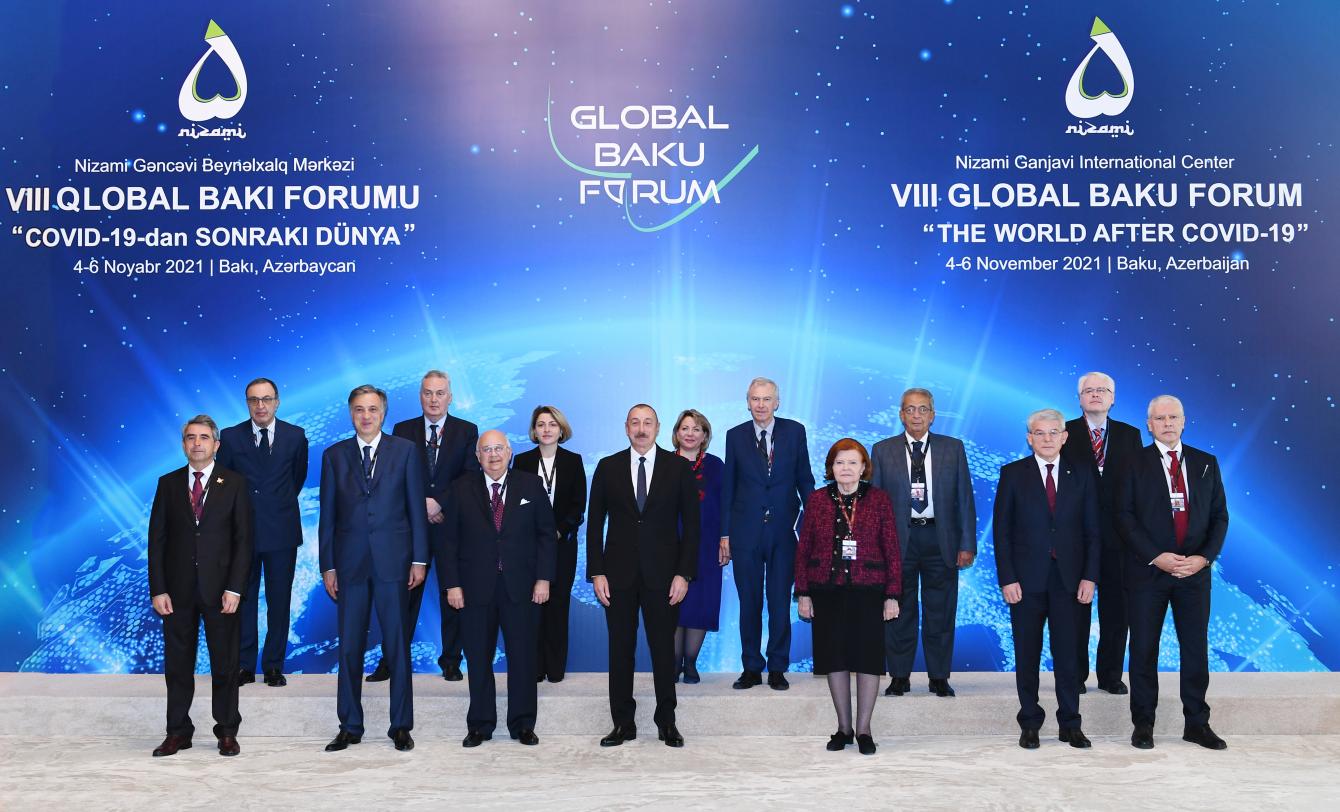
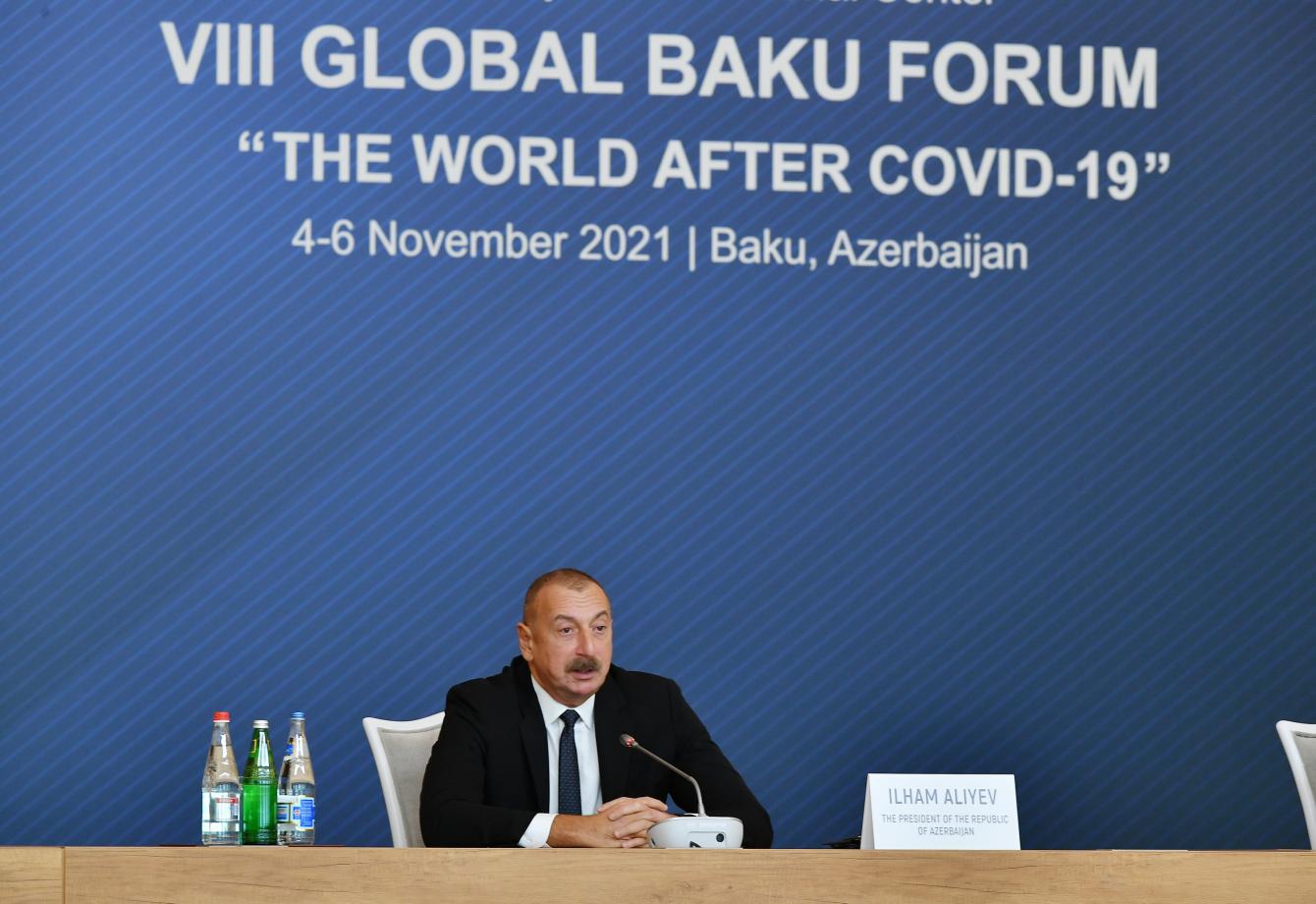
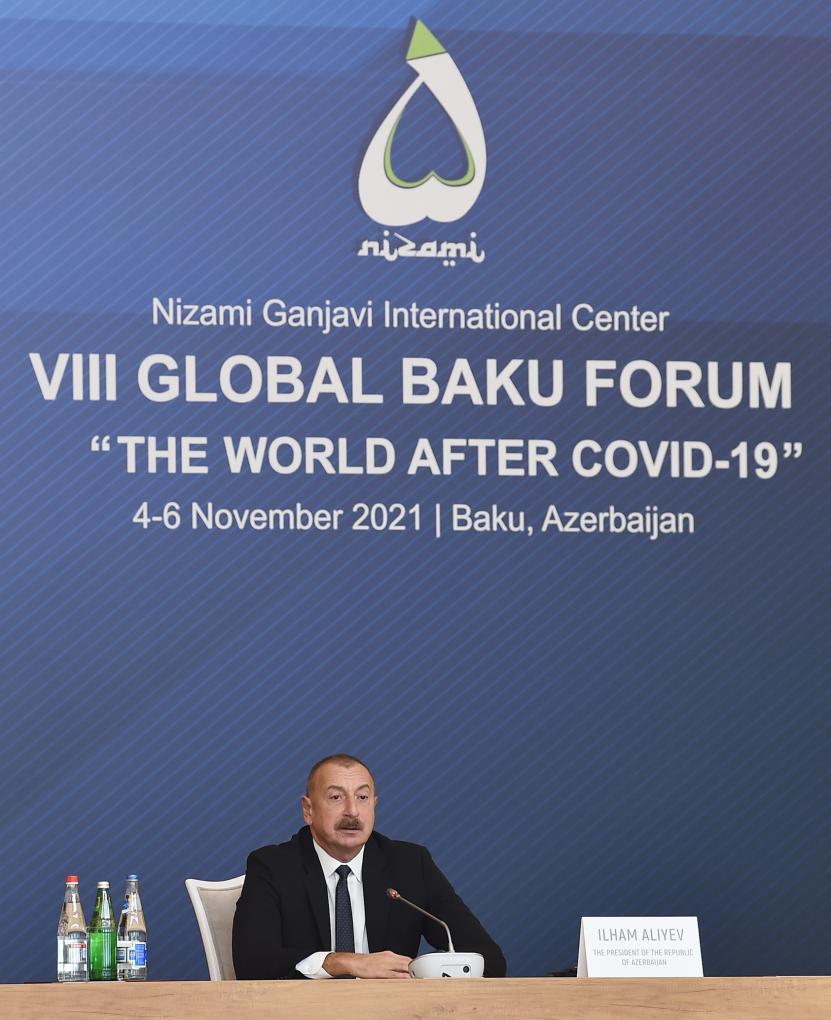
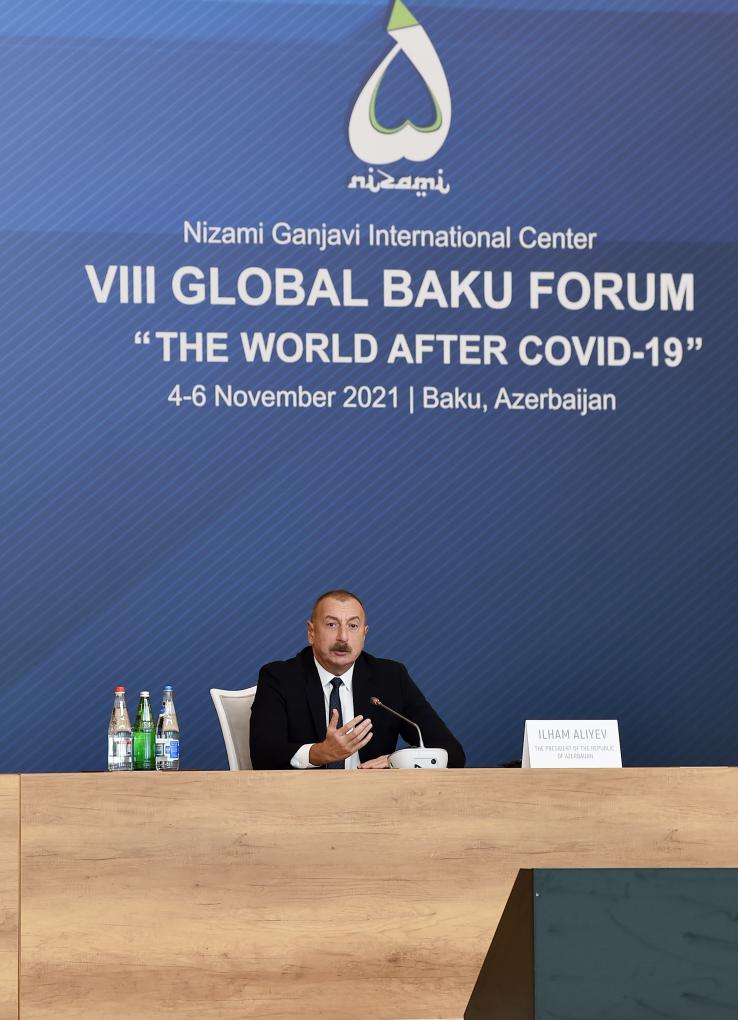
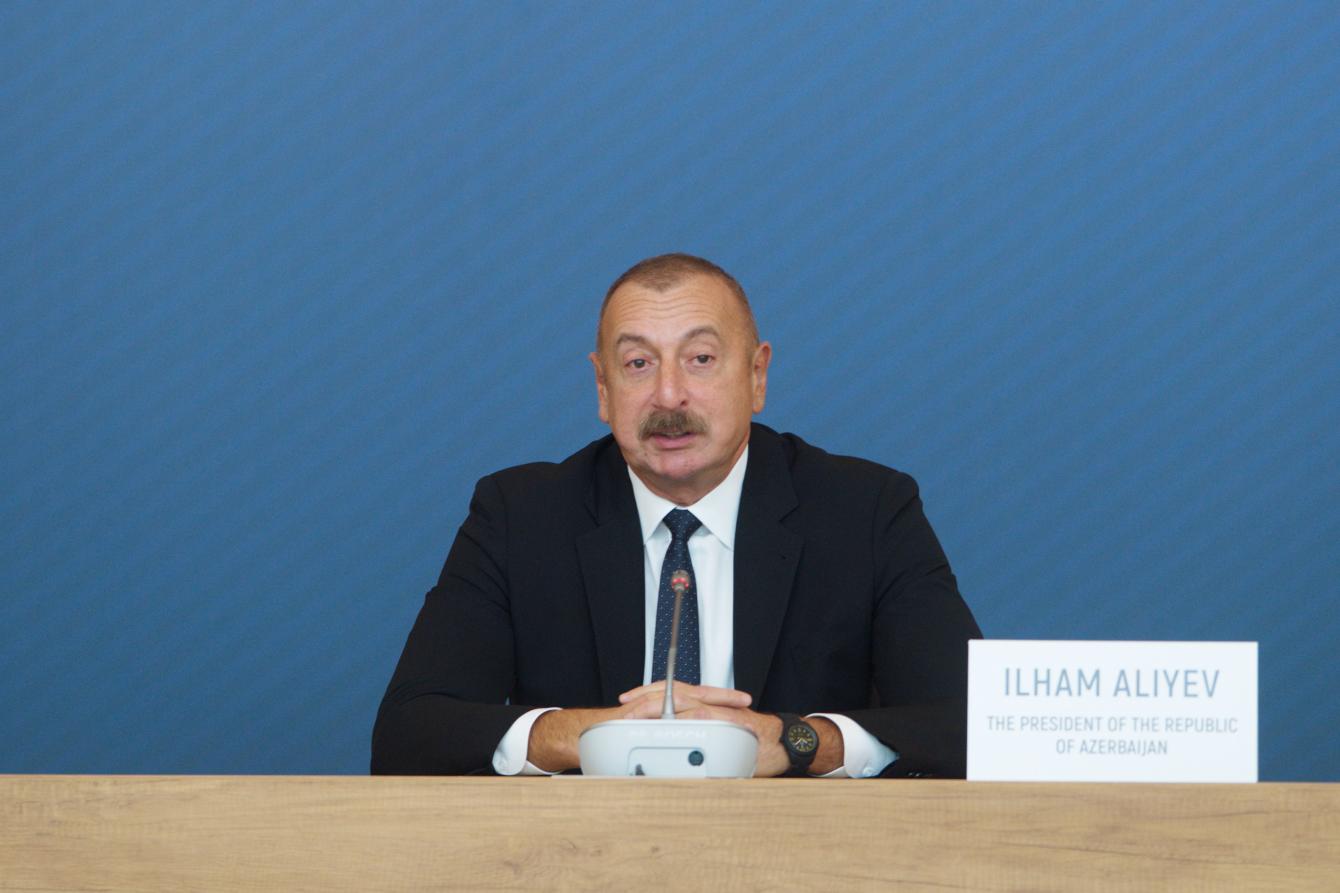
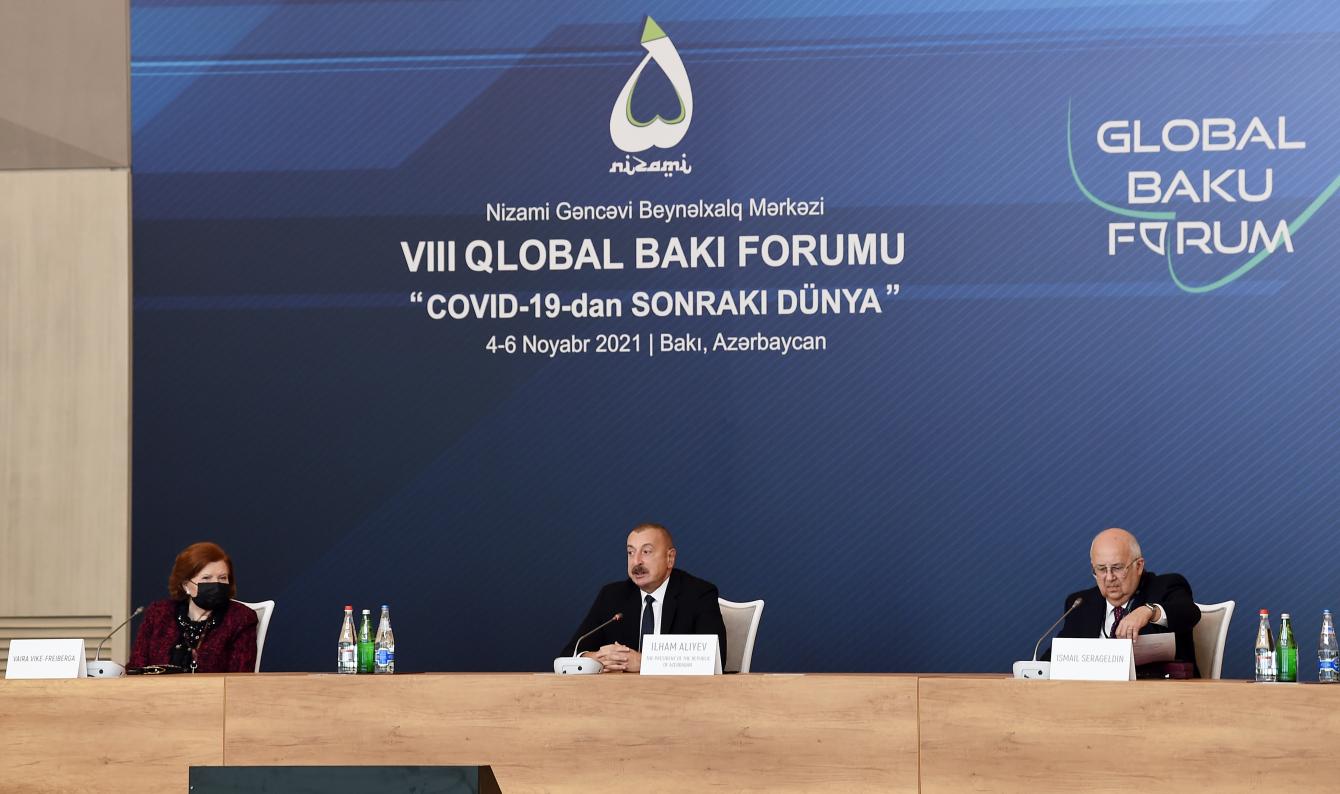
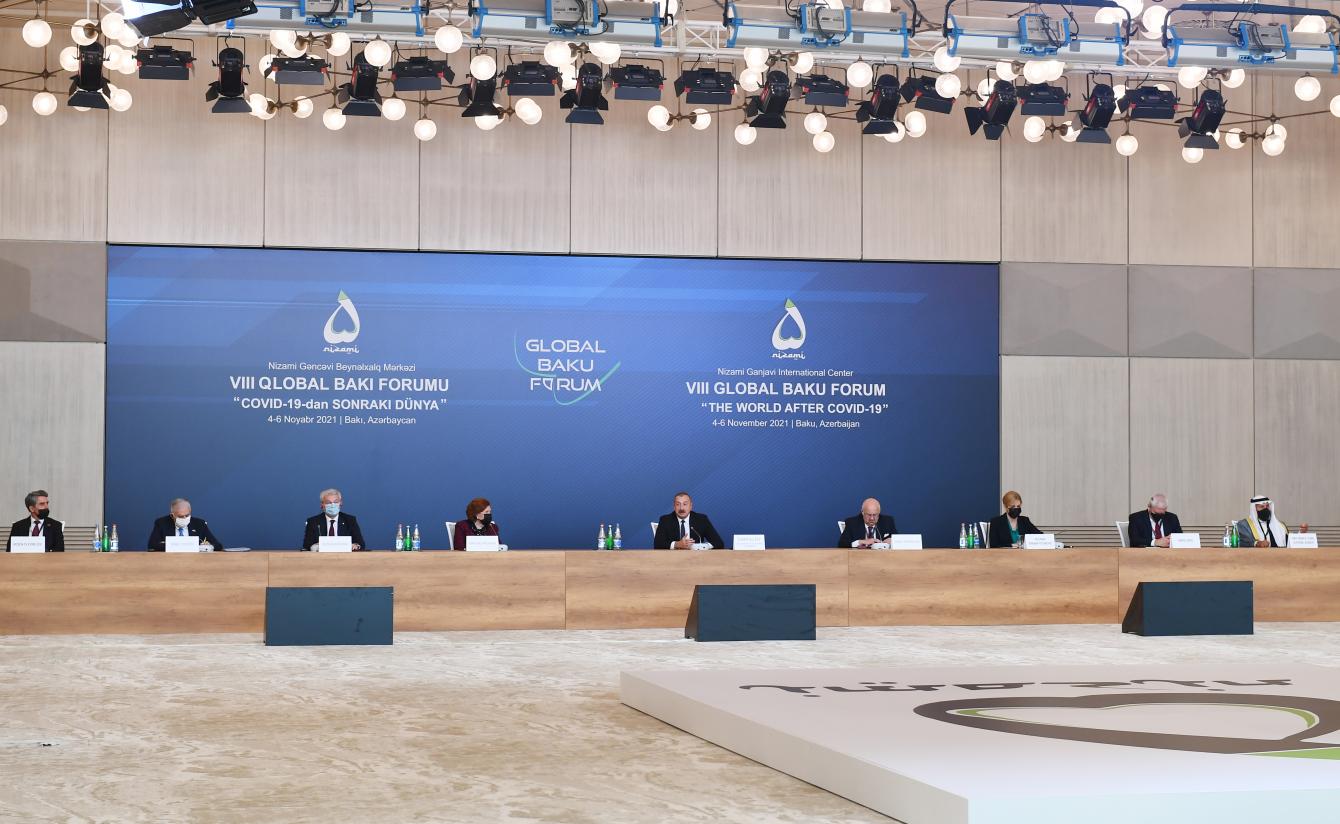
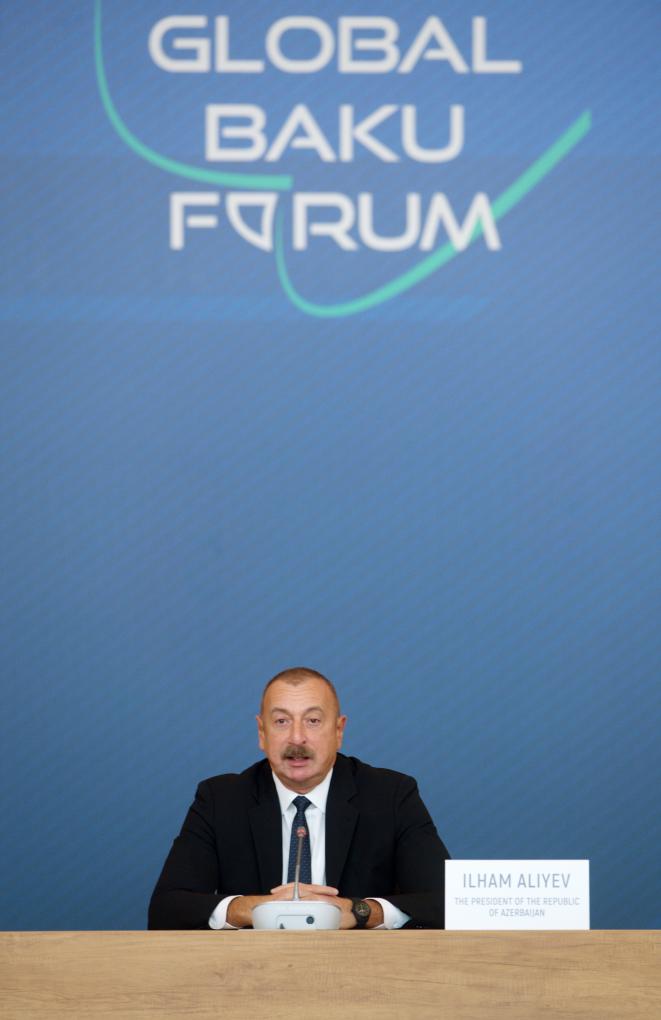
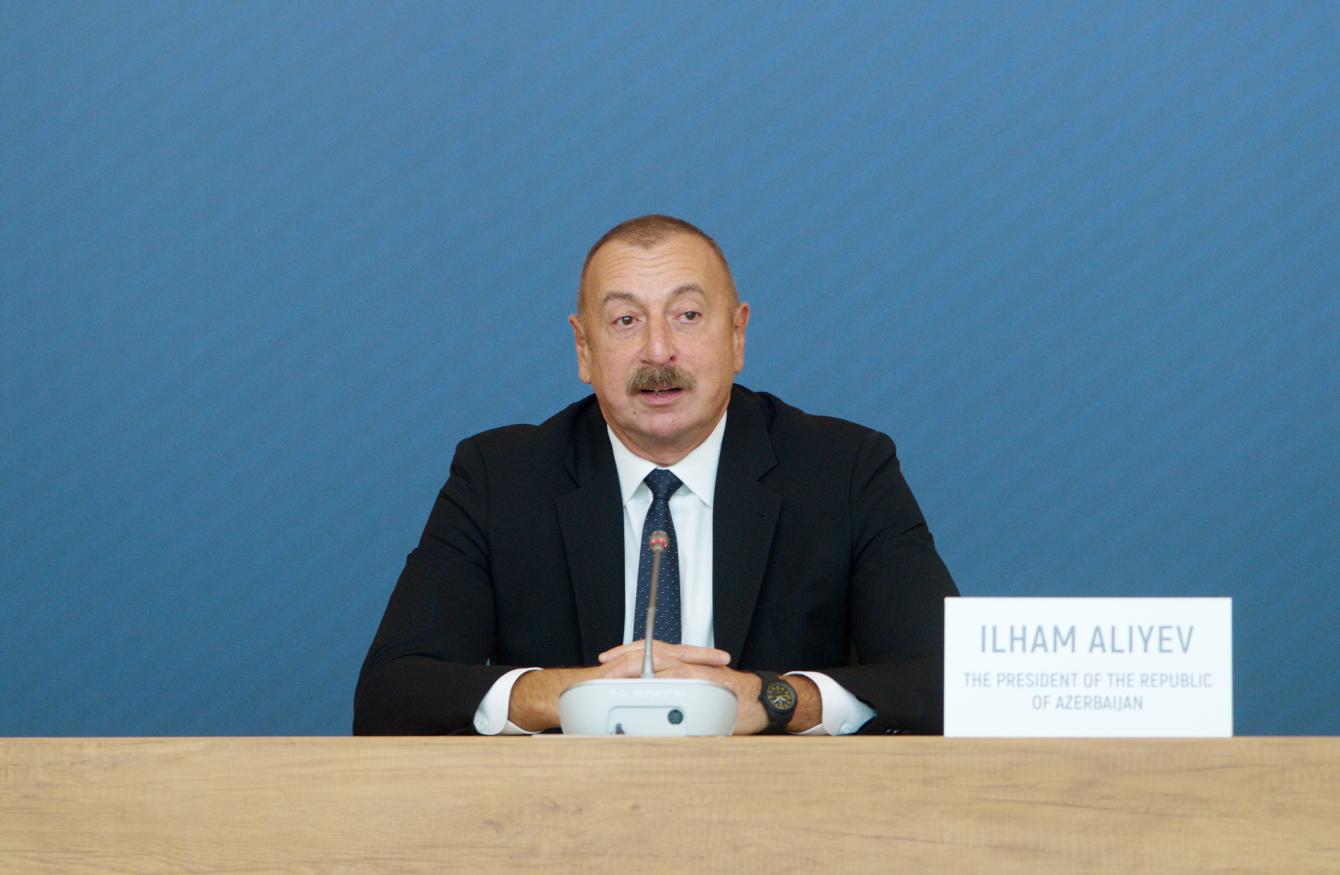
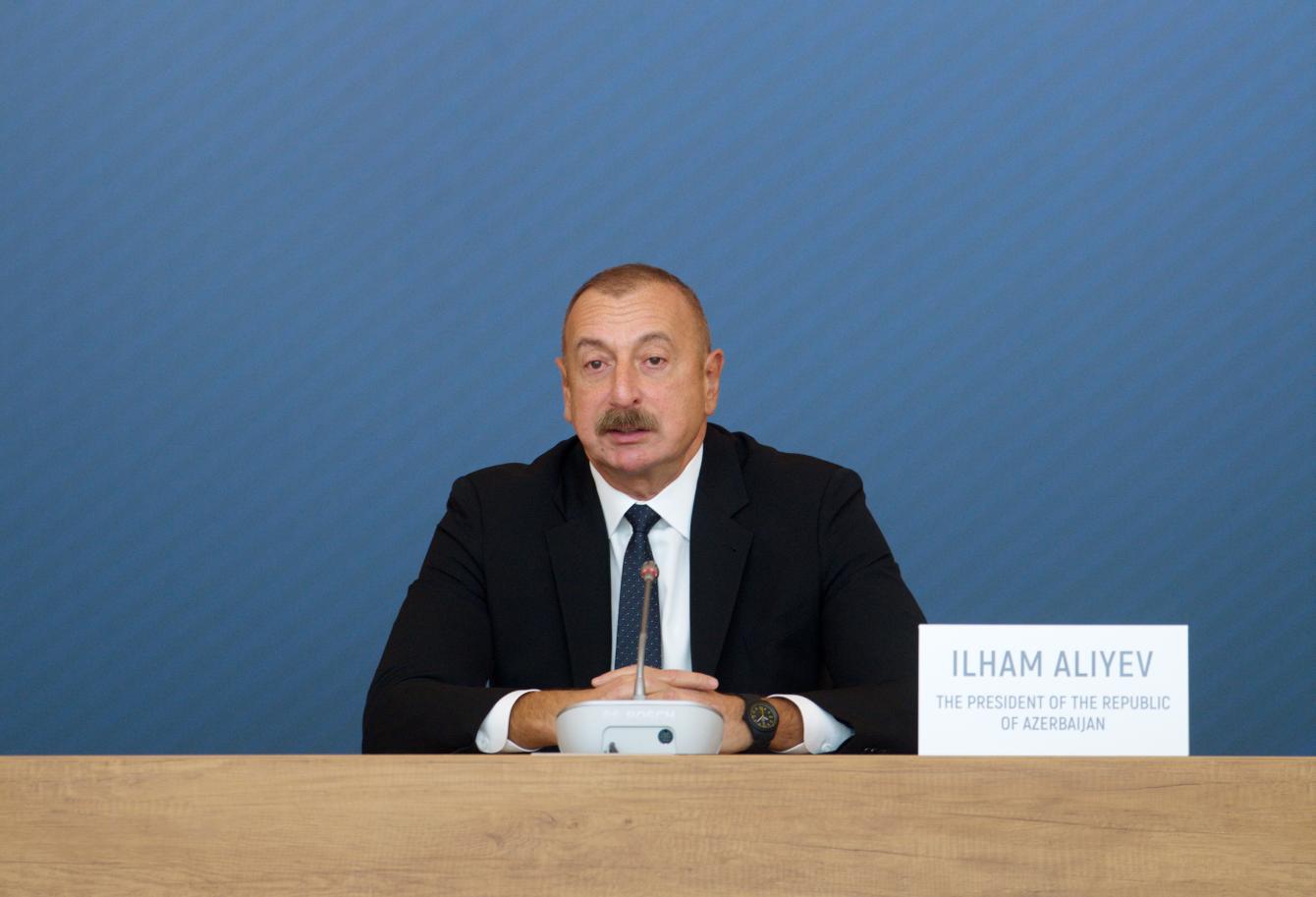
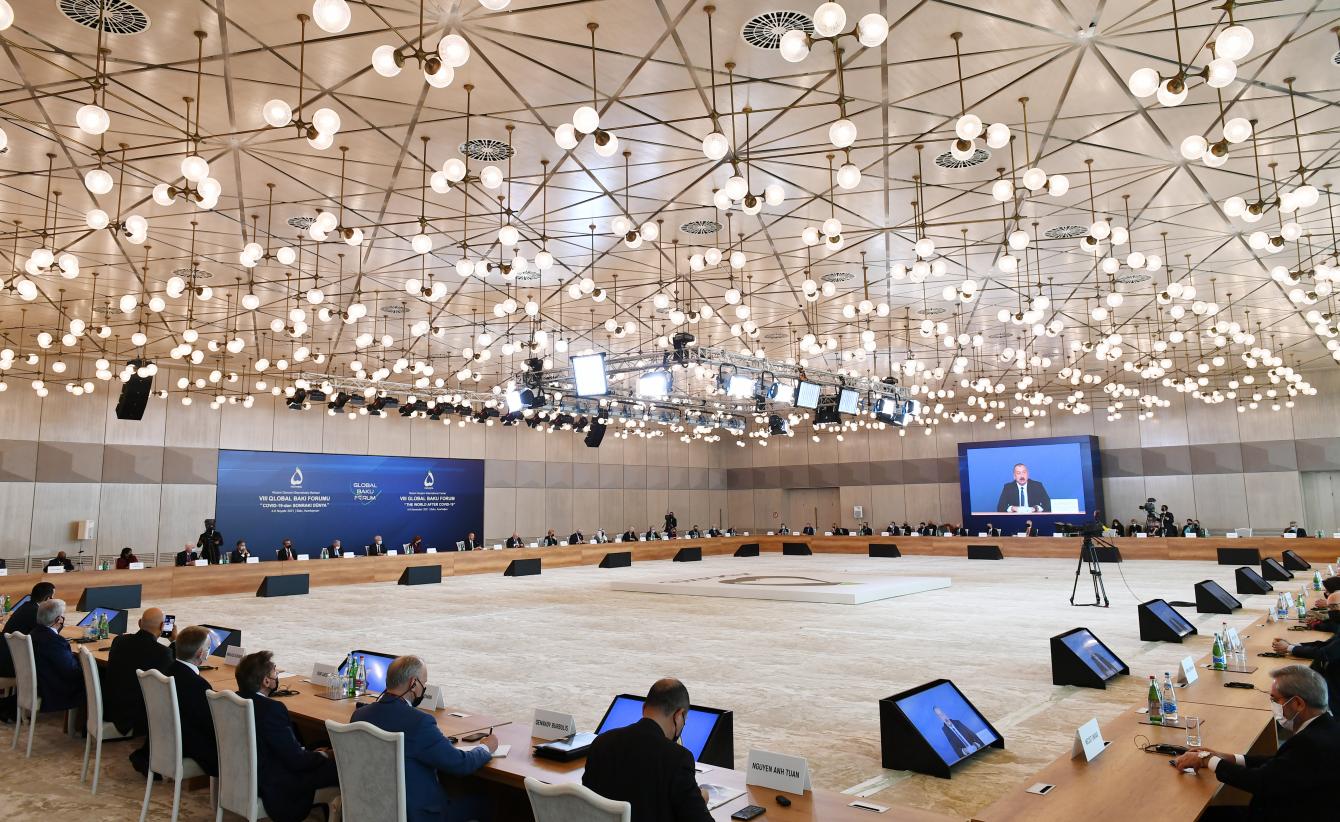
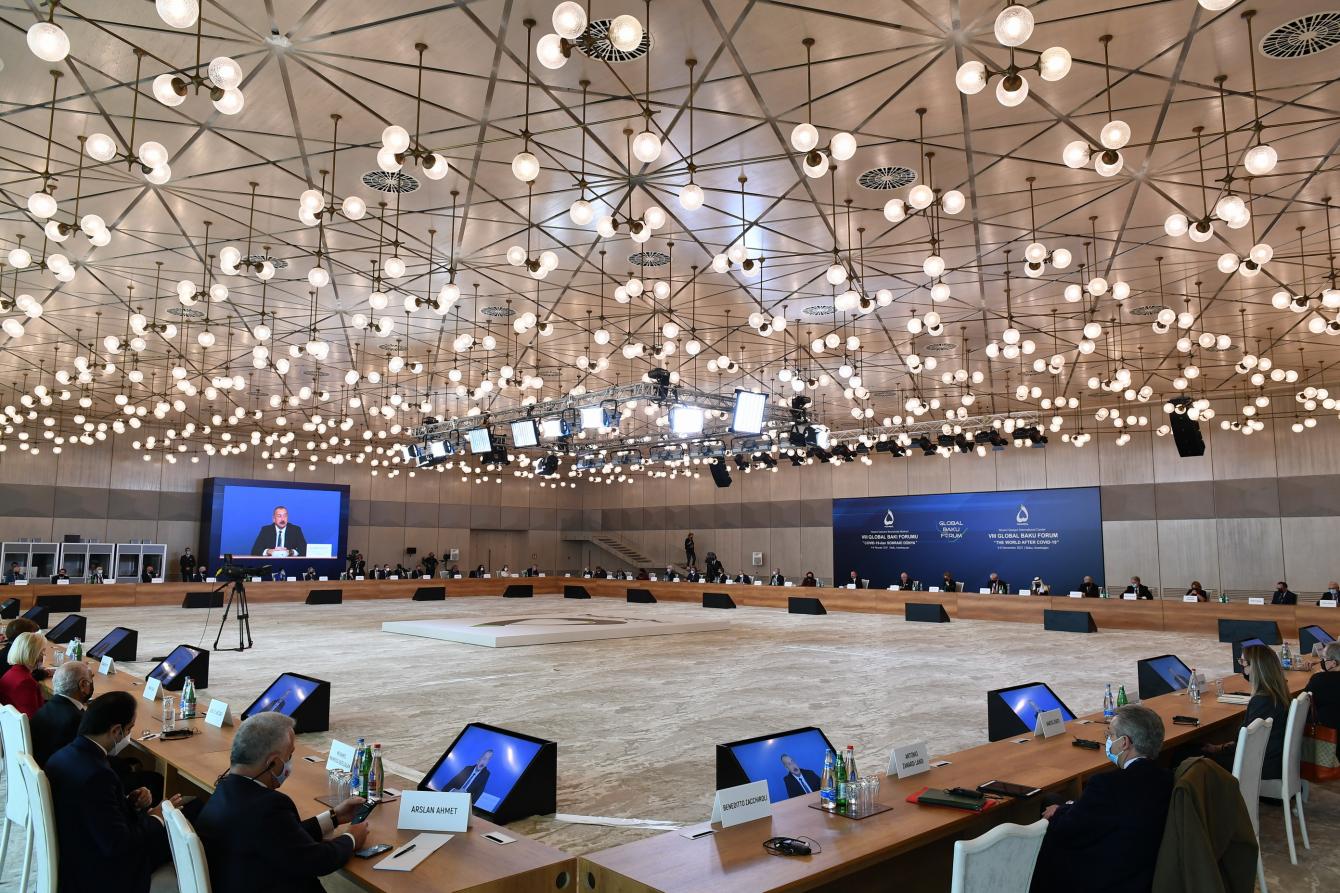
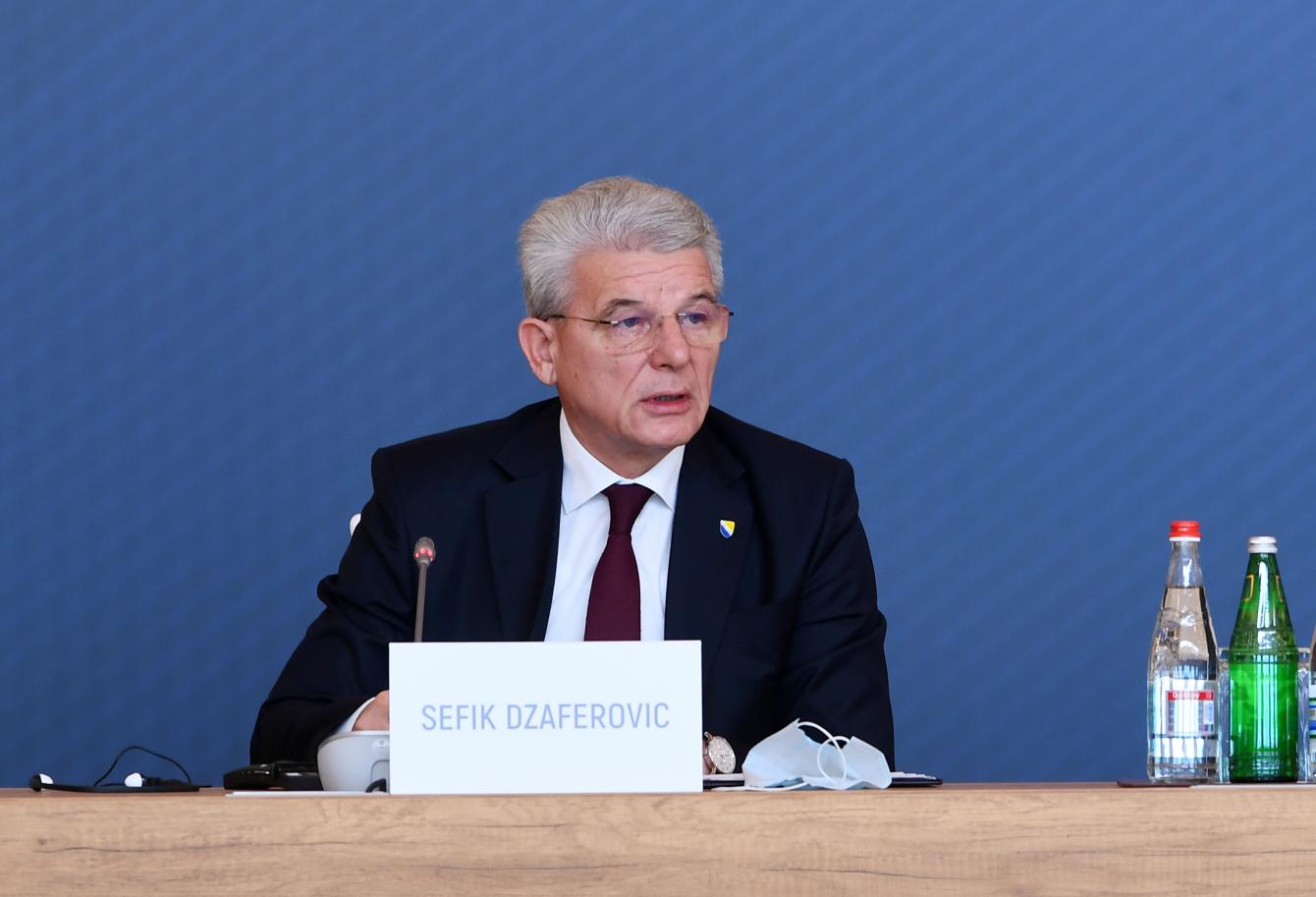
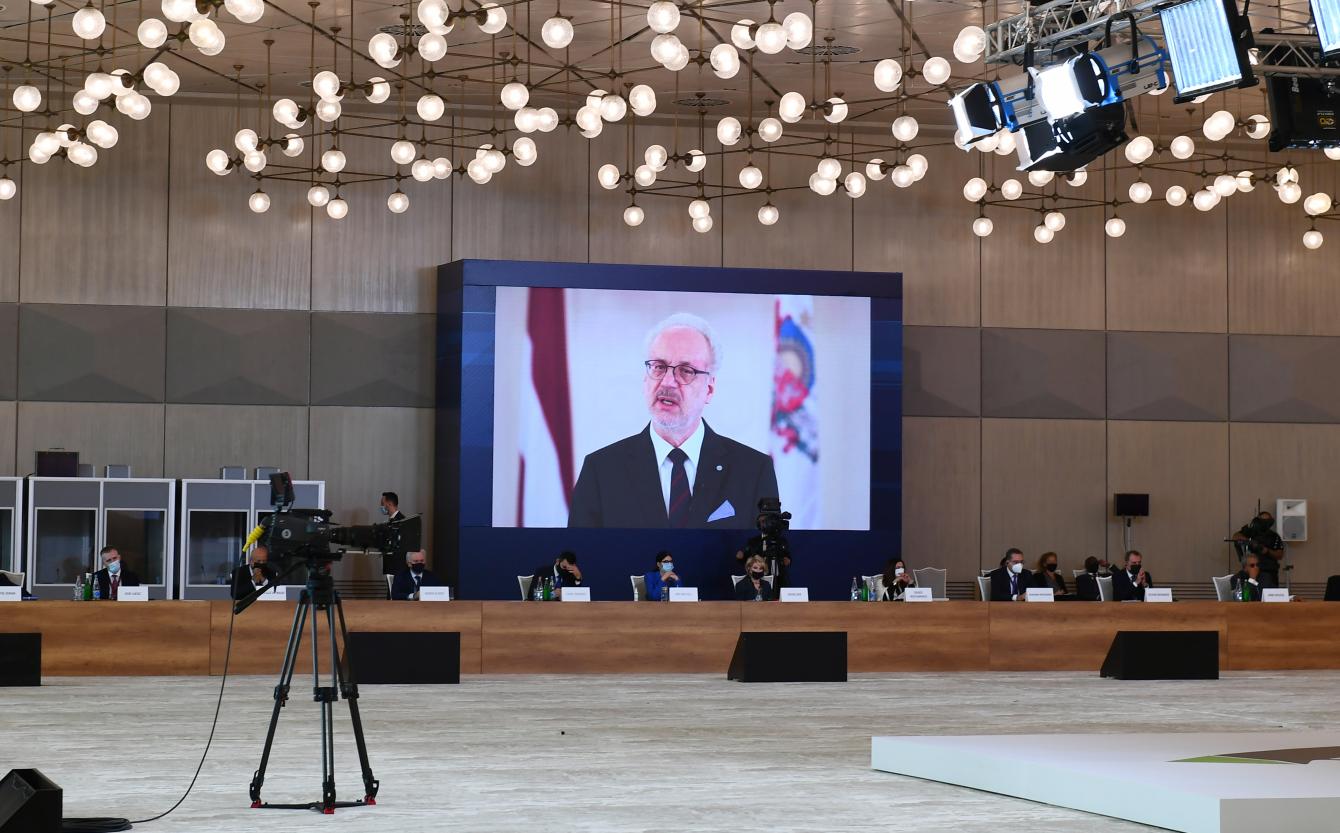
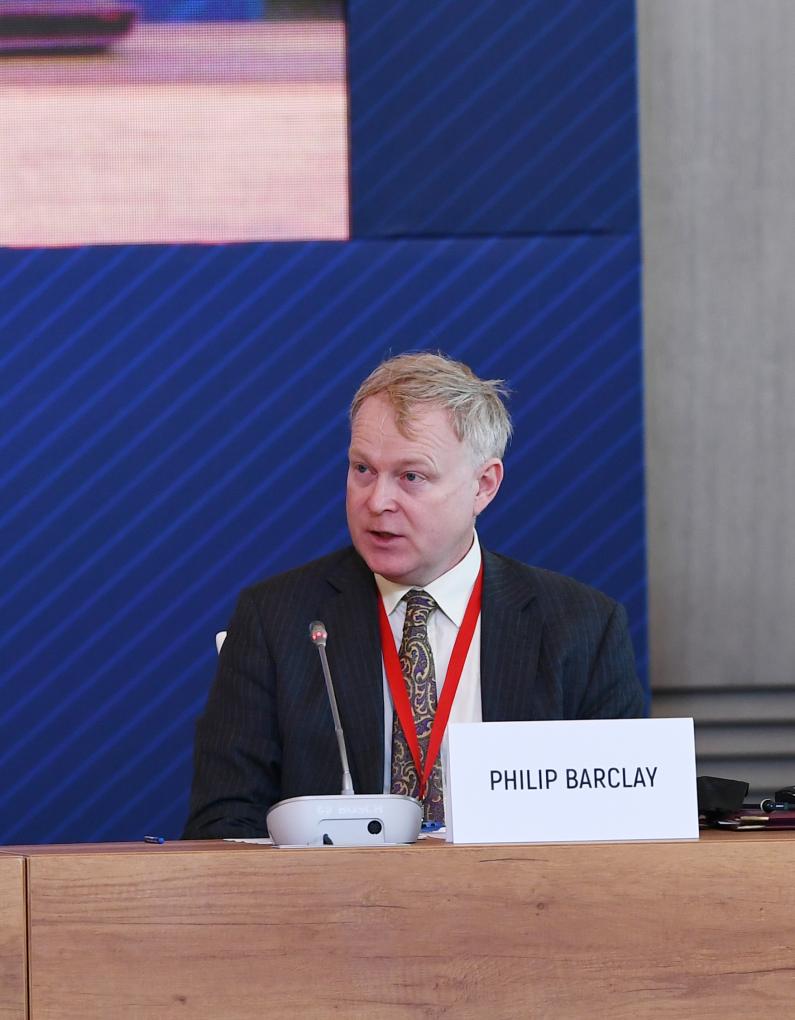
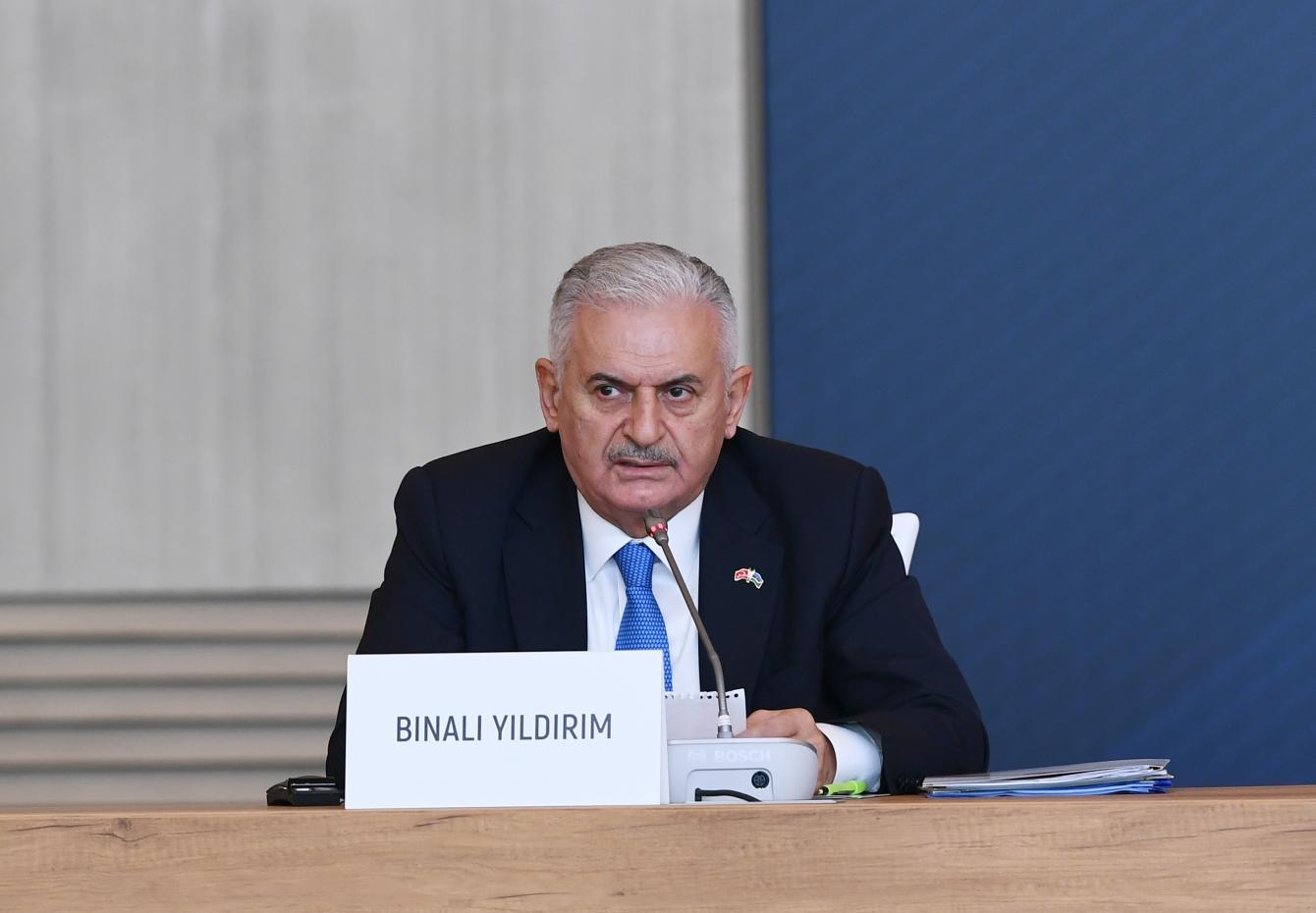
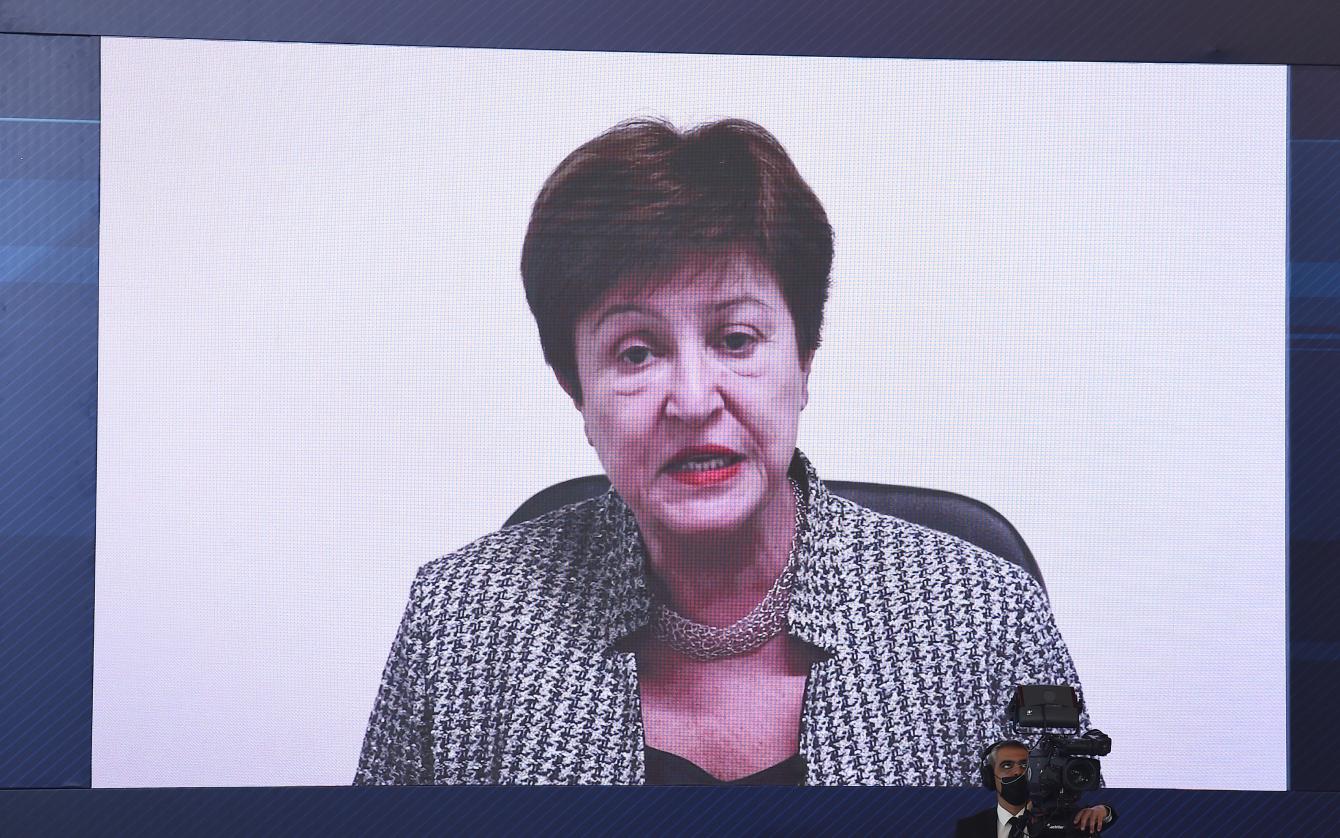
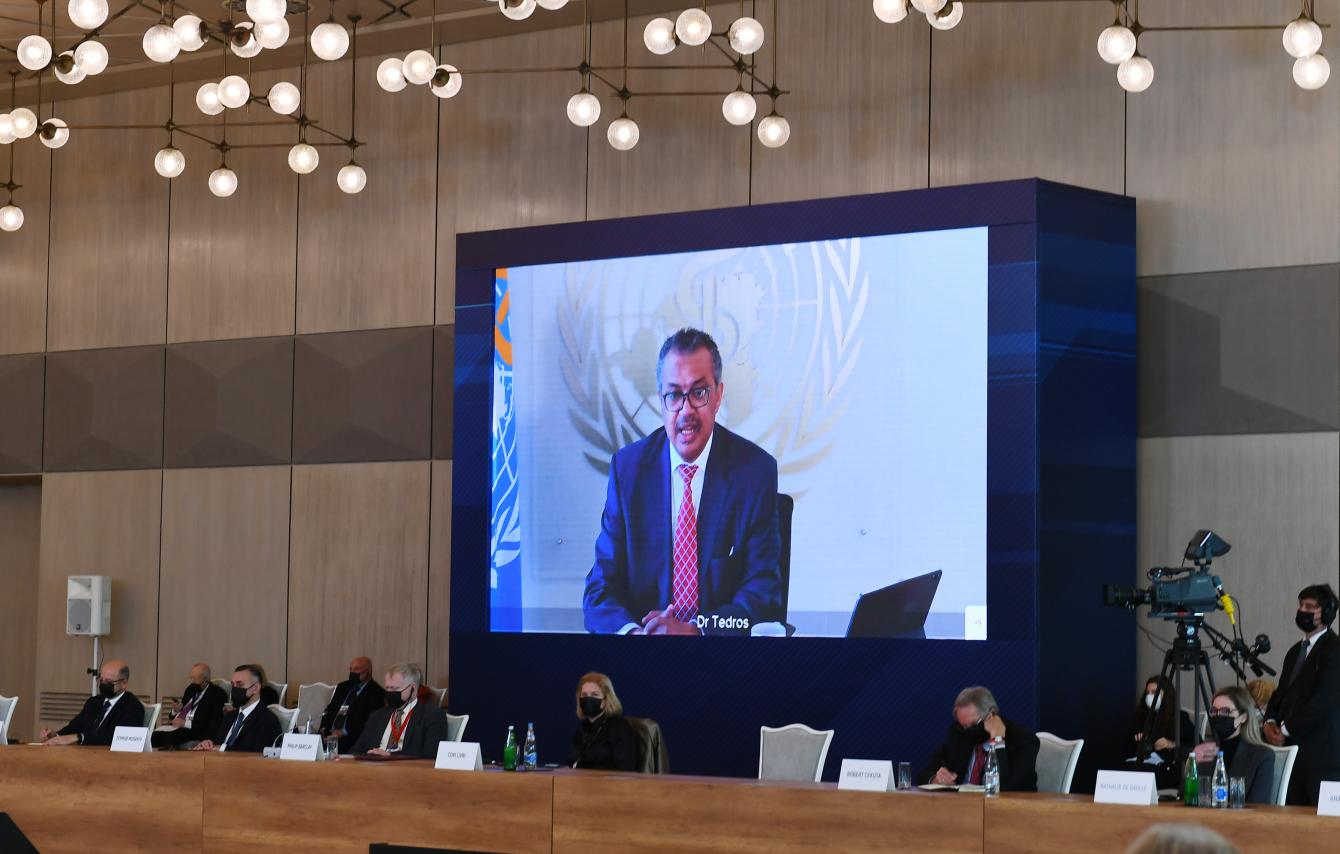
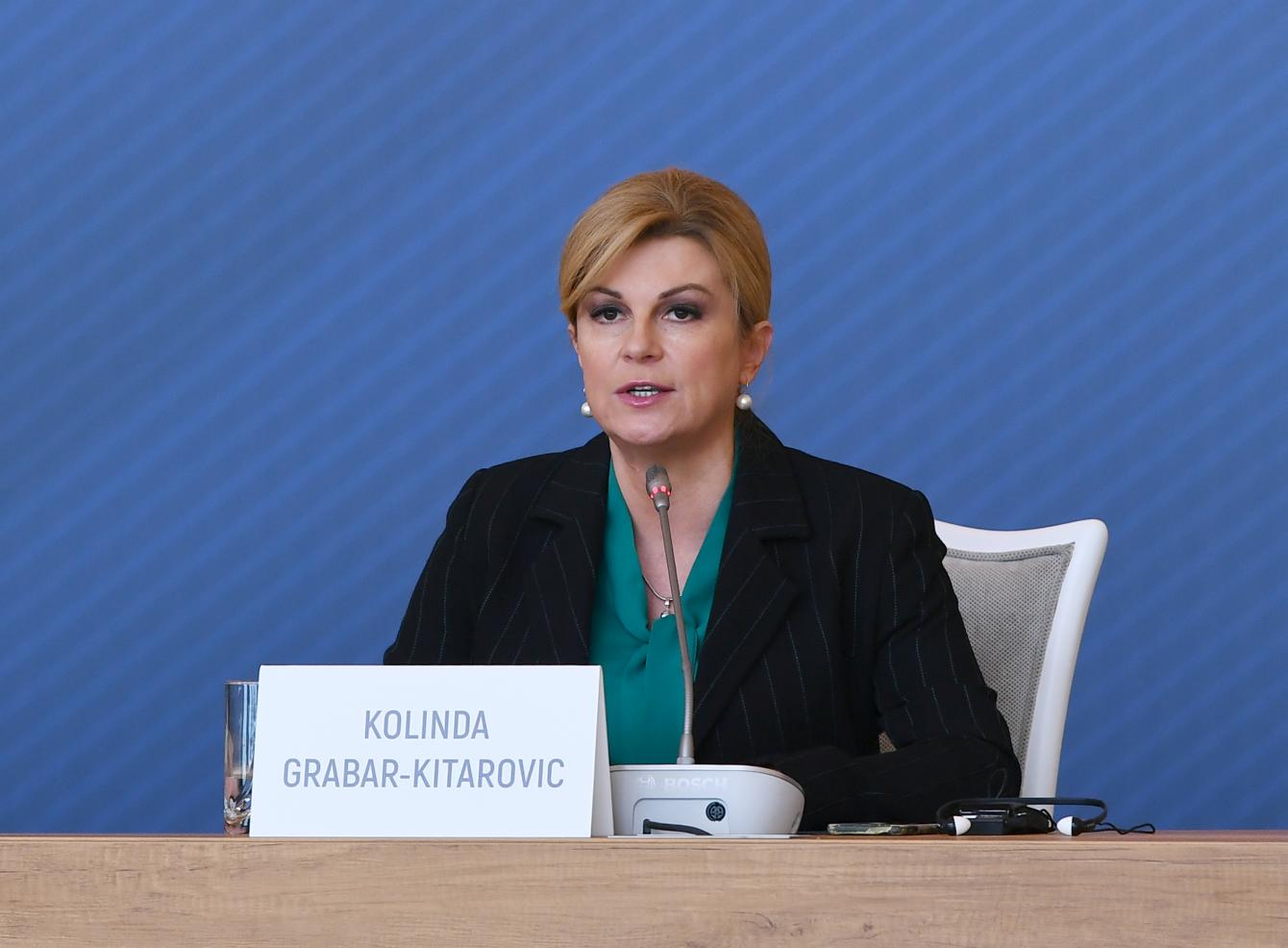
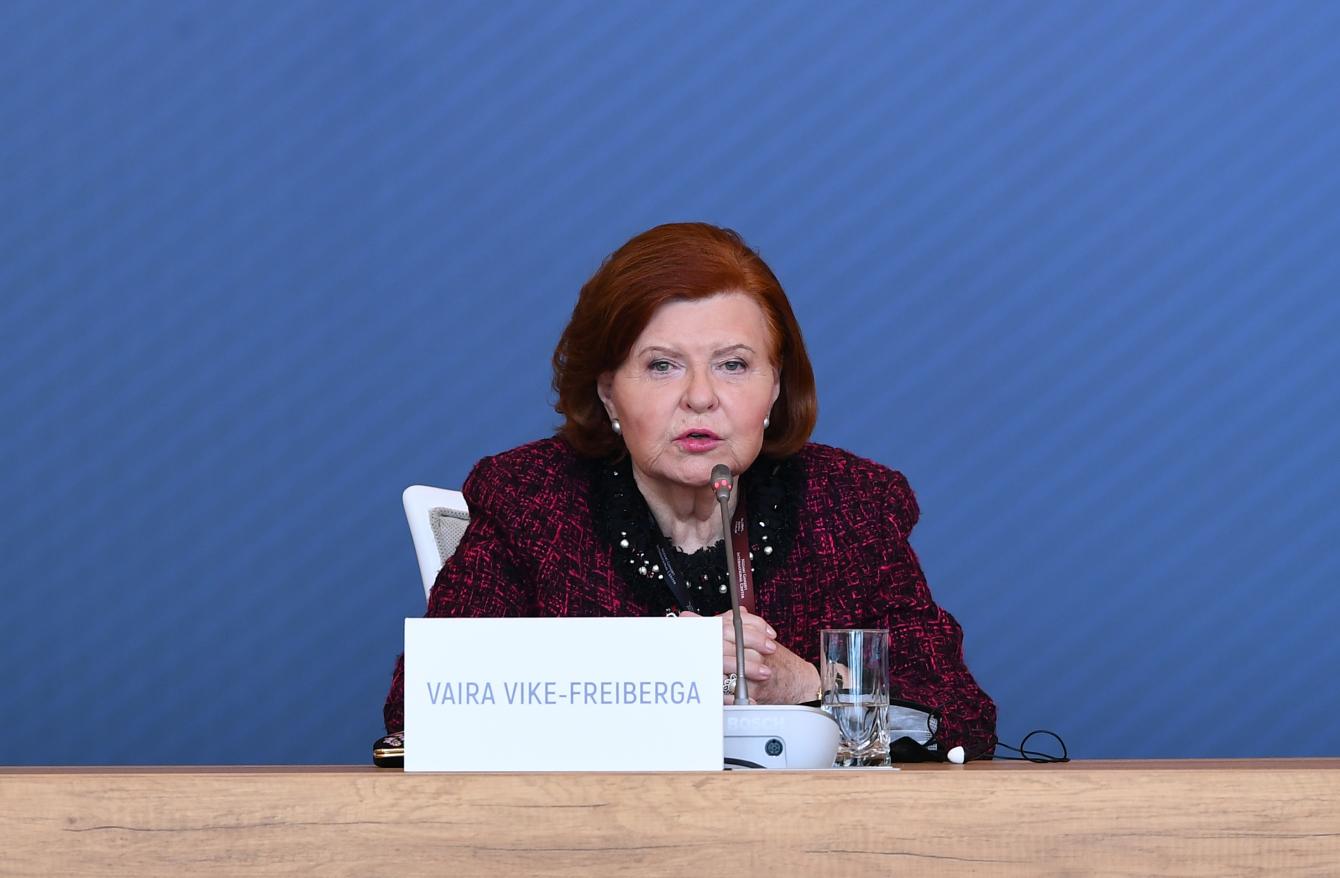
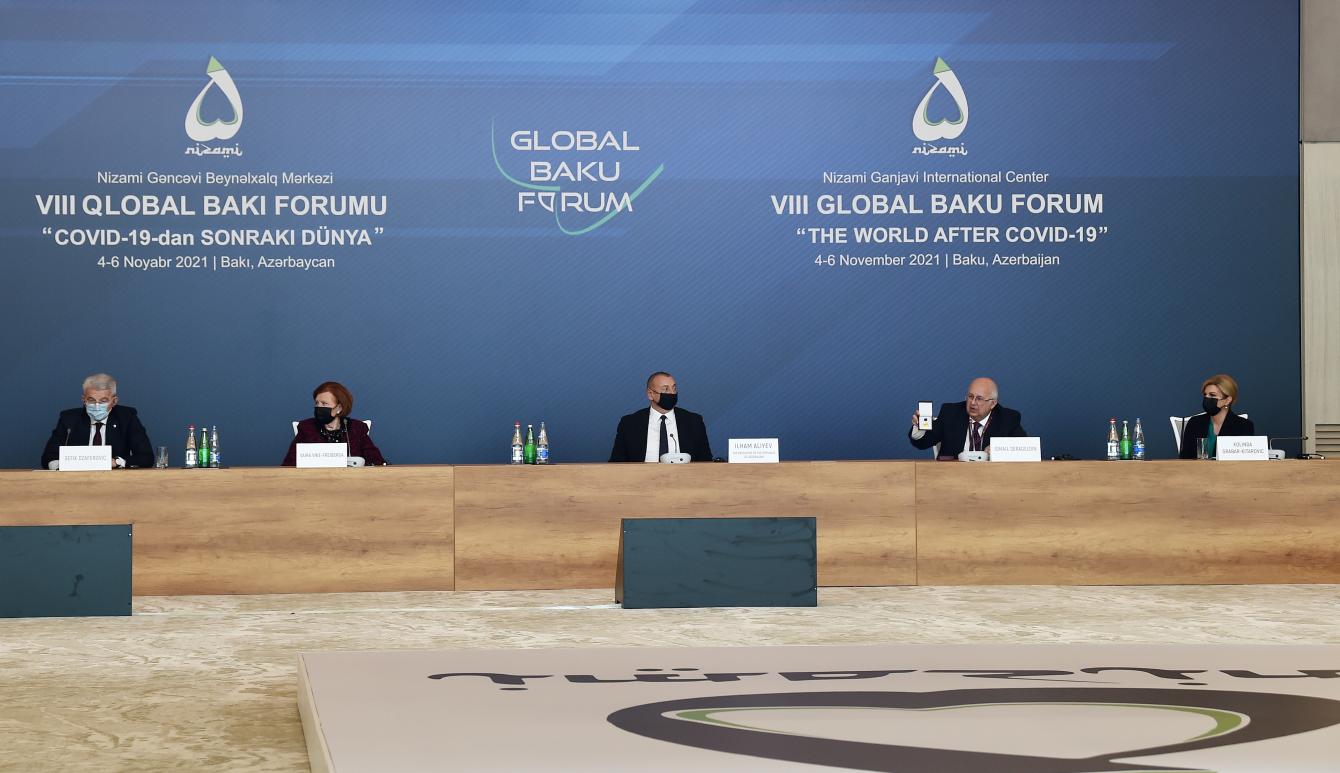
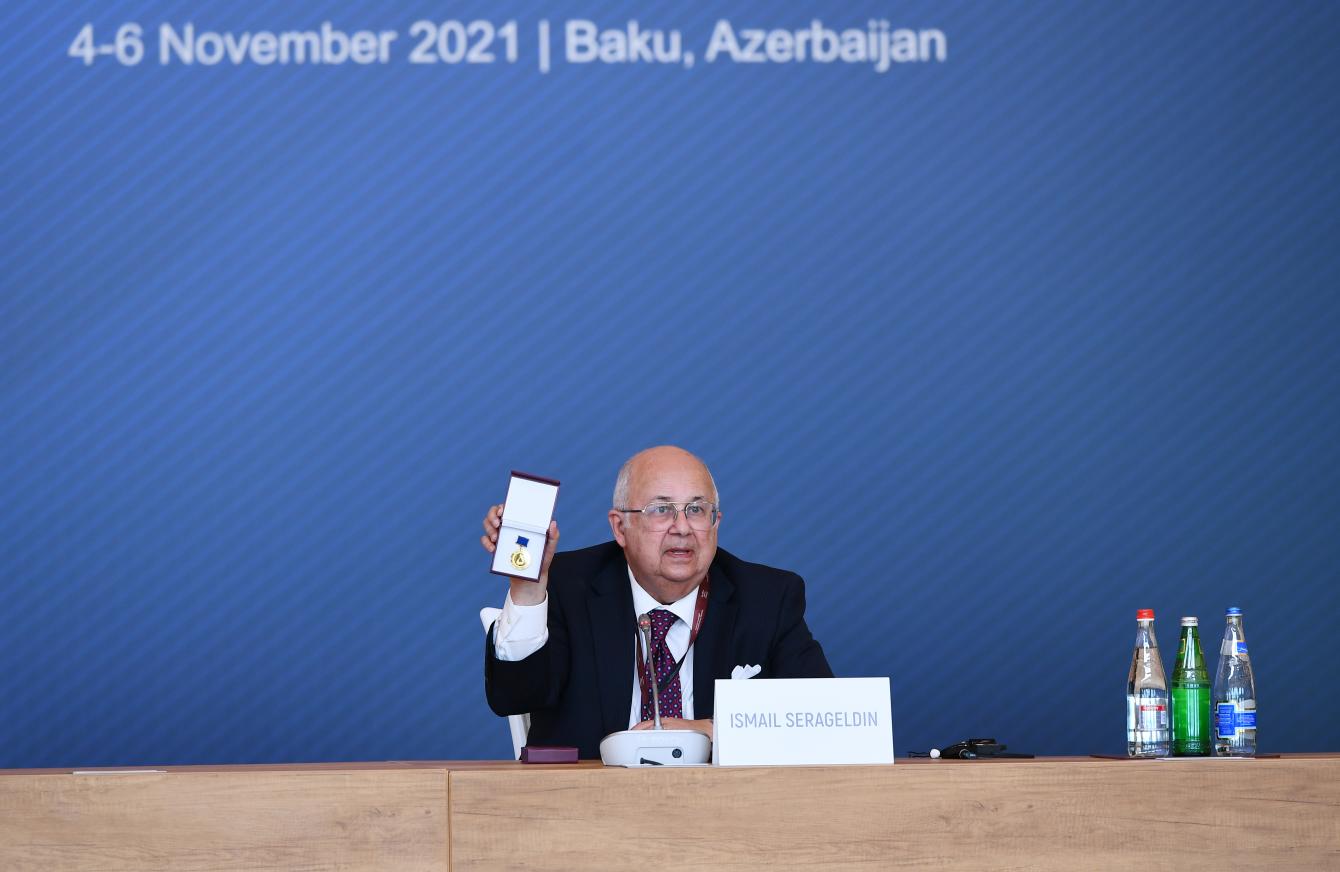
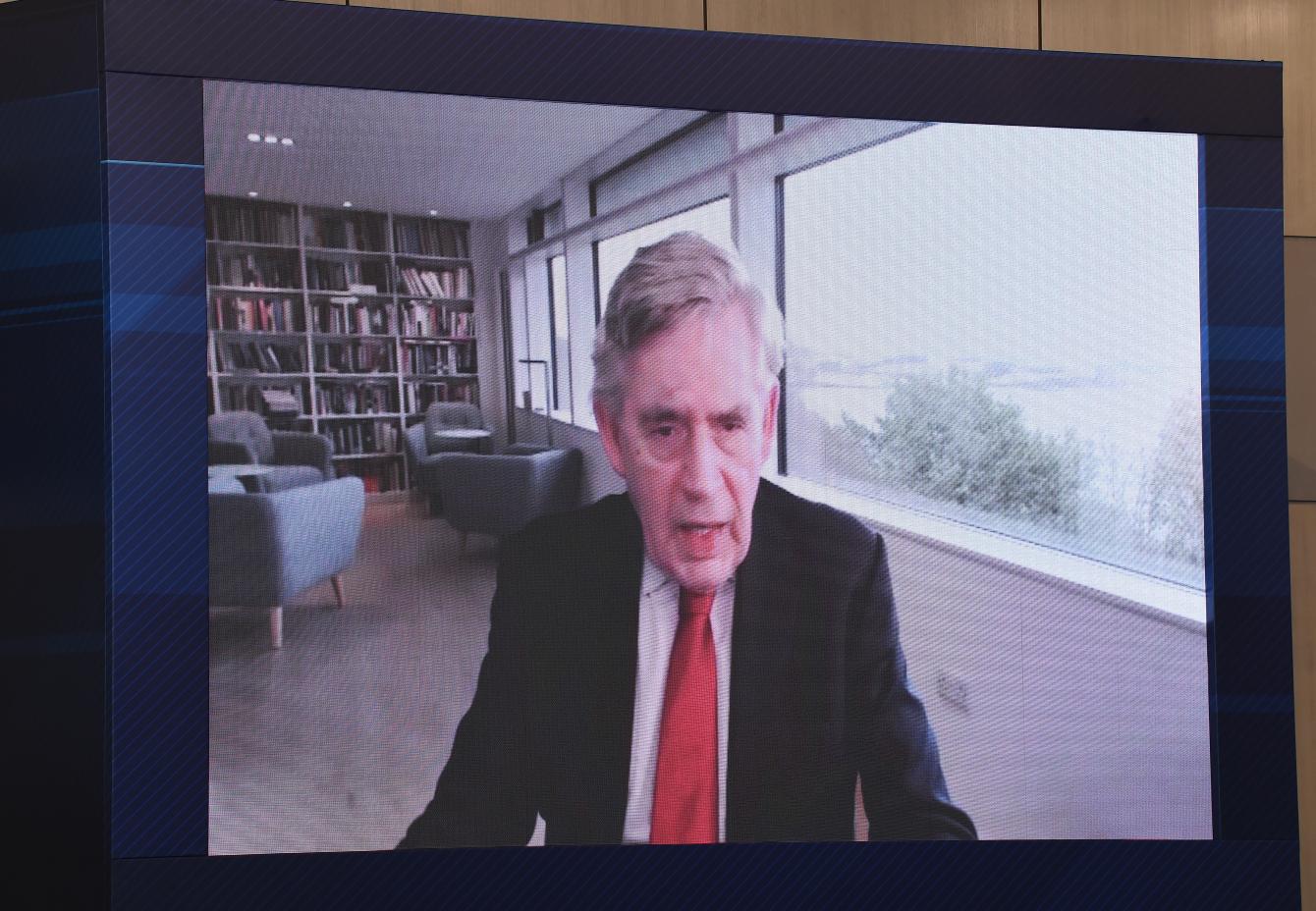
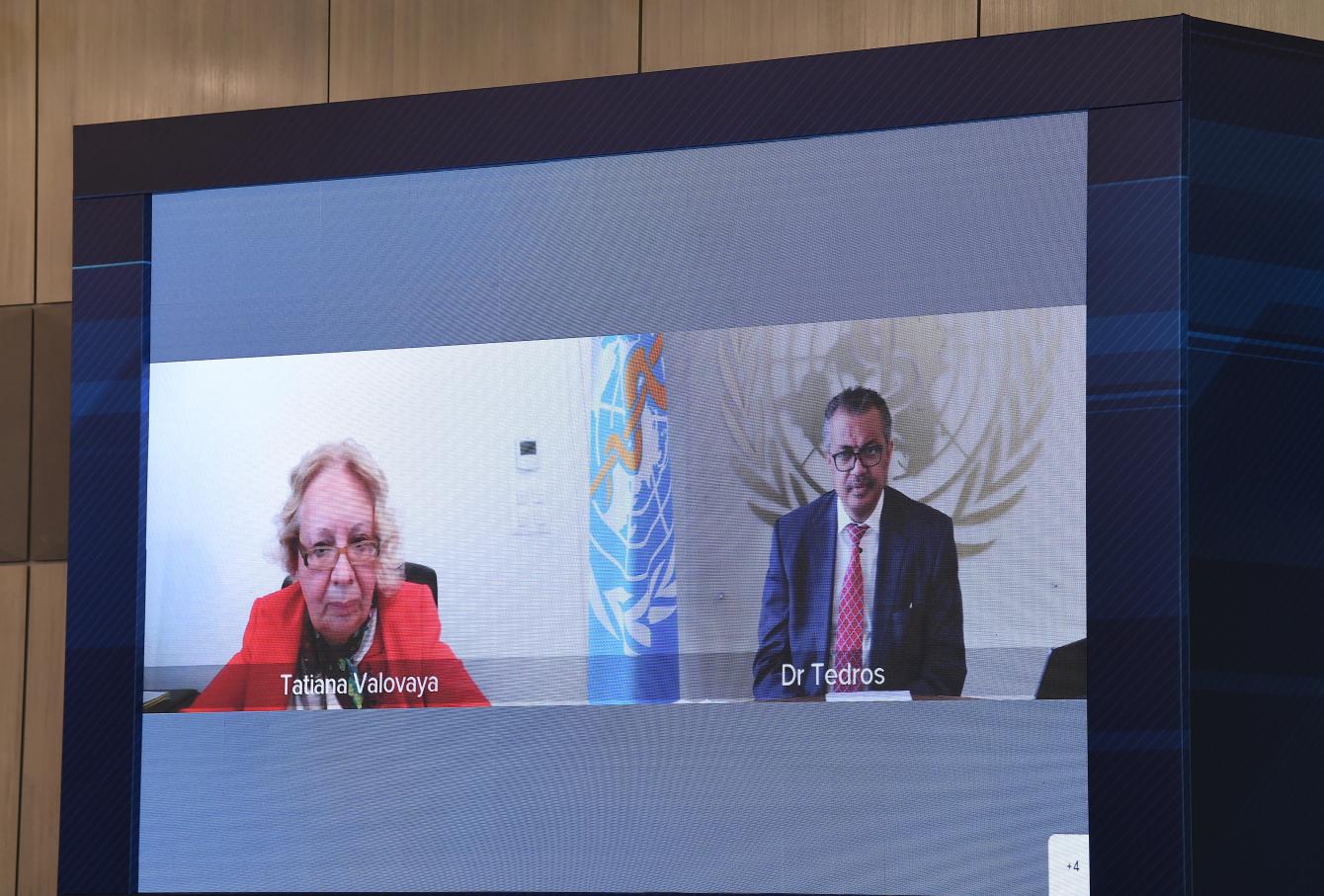

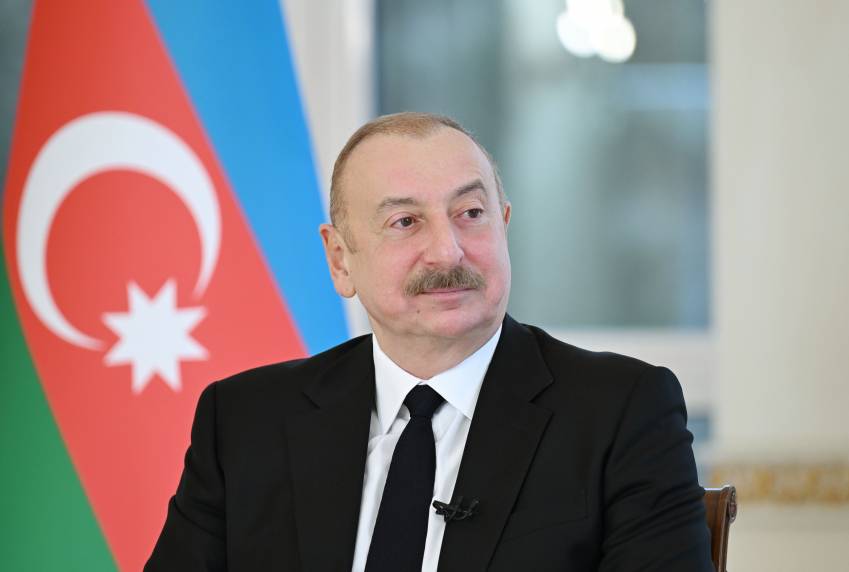
Your Eminence,
We were deeply saddened to hear of the passing of His Holiness Pope Francis, Head of the Holy See and one of the most prominent religious figures of our time.
In the person of Pope Francis, the international community and the Catholic world have lost...
21 April 2025, 14:13I sincerely congratulate you and the entire Christian community of Azerbaijan on the sacred holiday of Easter, and I extend my wishes of happiness and well-being to all of you.
In Azerbaijan, which has rich traditions of tolerance, there has never been a case of...
18 April 2025, 16:25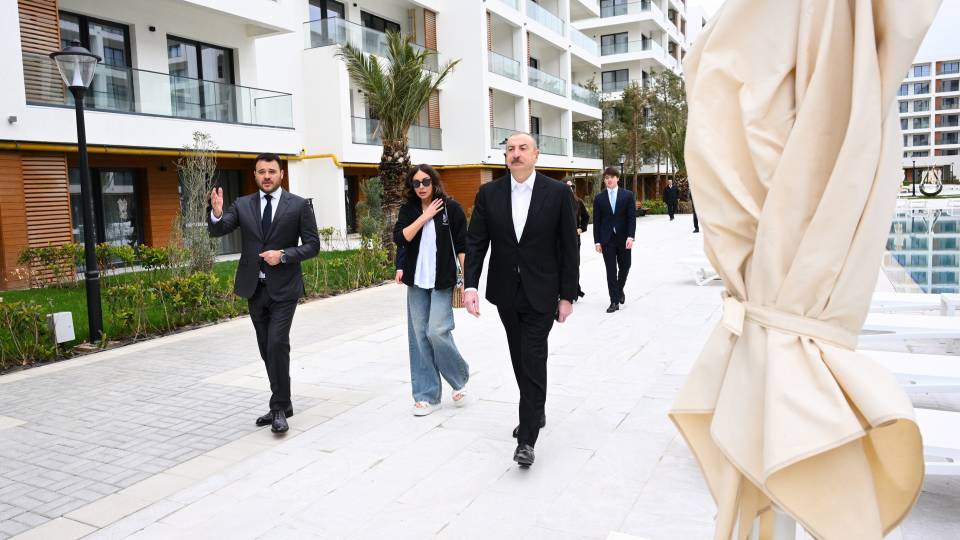
Dear Mr. Çavuşoğlu,
I was deeply saddened to learn of the passing of your father, Osman Çavuşoğlu — a profound loss for your family.
In this time of sorrow, I share in your grief and extend my deepest condolences to you and all the members of your family,...
18 April 2025, 12:37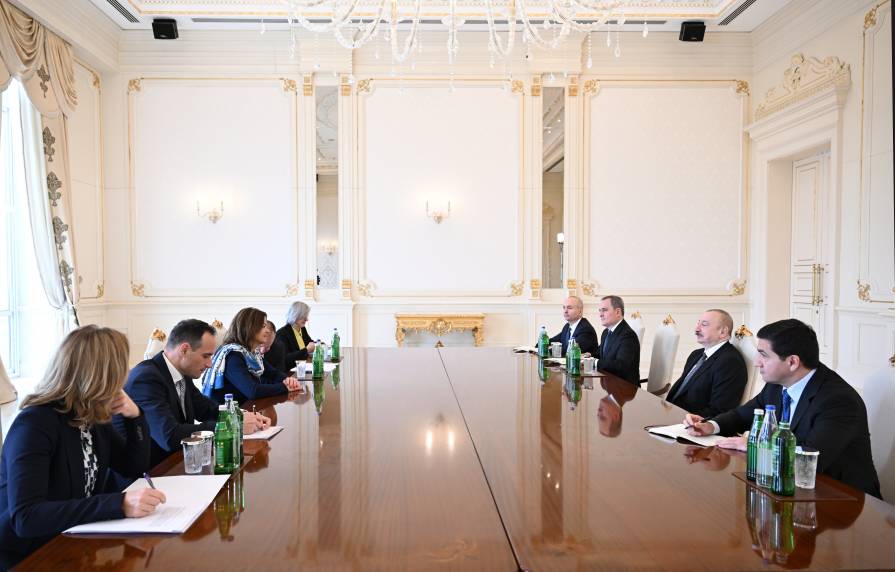
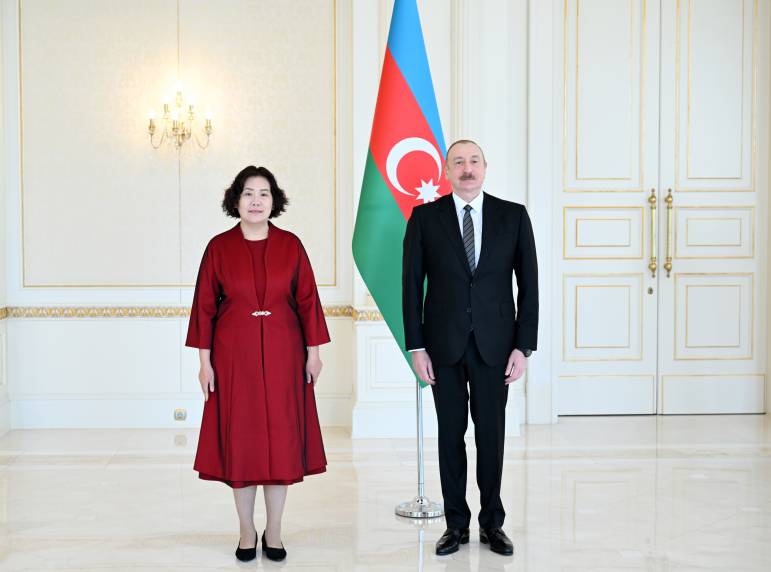
We were deeply saddened to learn of the passing of Richard Armitage – an eminent statesman, distinguished diplomat, dedicated public servant, and a great friend of Azerbaijan.
His years-long, productive service in international politics and diplomacy, coupled with...
16 April 2025, 18:06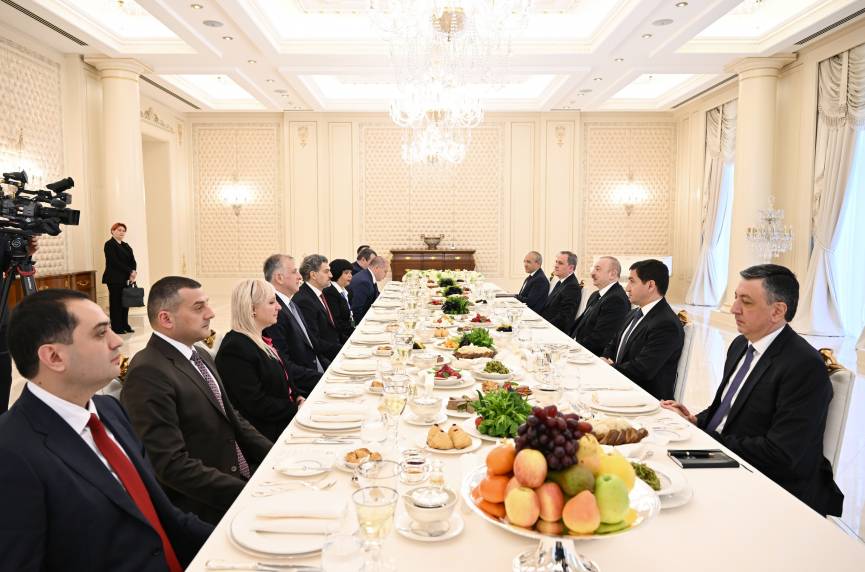
Statement by President Ilham Aliyev
- Dear Mr. President,
Dear guests,
Ladies and gentlemen,
Dear Mr. President, I would like to once again sincerely welcome you to Azerbaijan! I cordially congratulate you again on your election as a President and wish you ...
16 April 2025, 12:12